HOW TO CHOOSE YOUR PEARL
Your pearl journey begins here. Understanding what makes each pearl unique is the first step in choosing a piece you will cherish forever. This guide will help you exp[lore the defining qualities of a pearl, from size, colour, lustre and surface, so you can confidently select the perfect gem that speaks to your style and story.
-
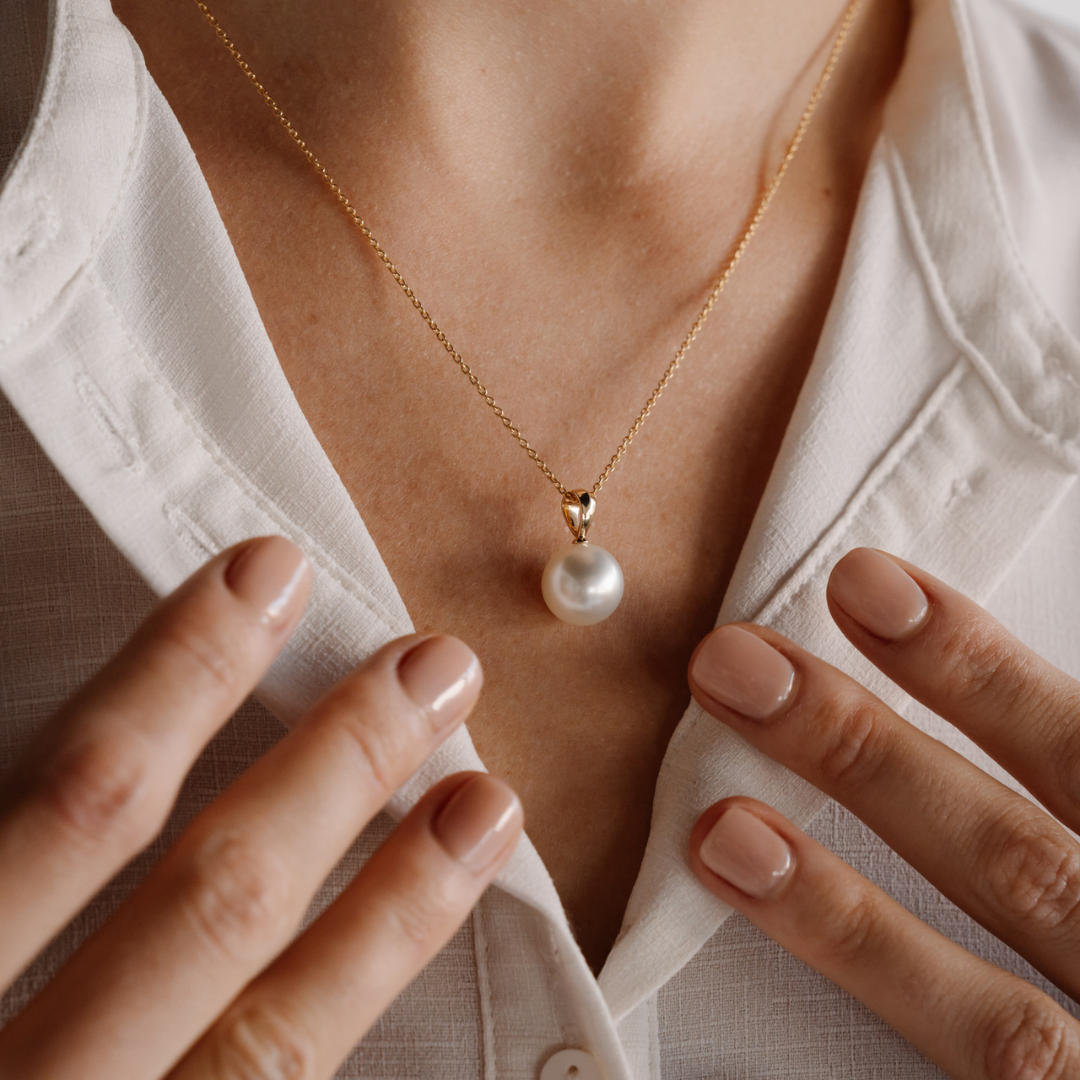
south sea pearls
Shop South Sea Pearls- Medium - Large
- Size: 10-15mm
- Colour: White or cream
- Oyster Species: Pinctada maxima
- Origin: Cygnet Bay Pearl Farm
-
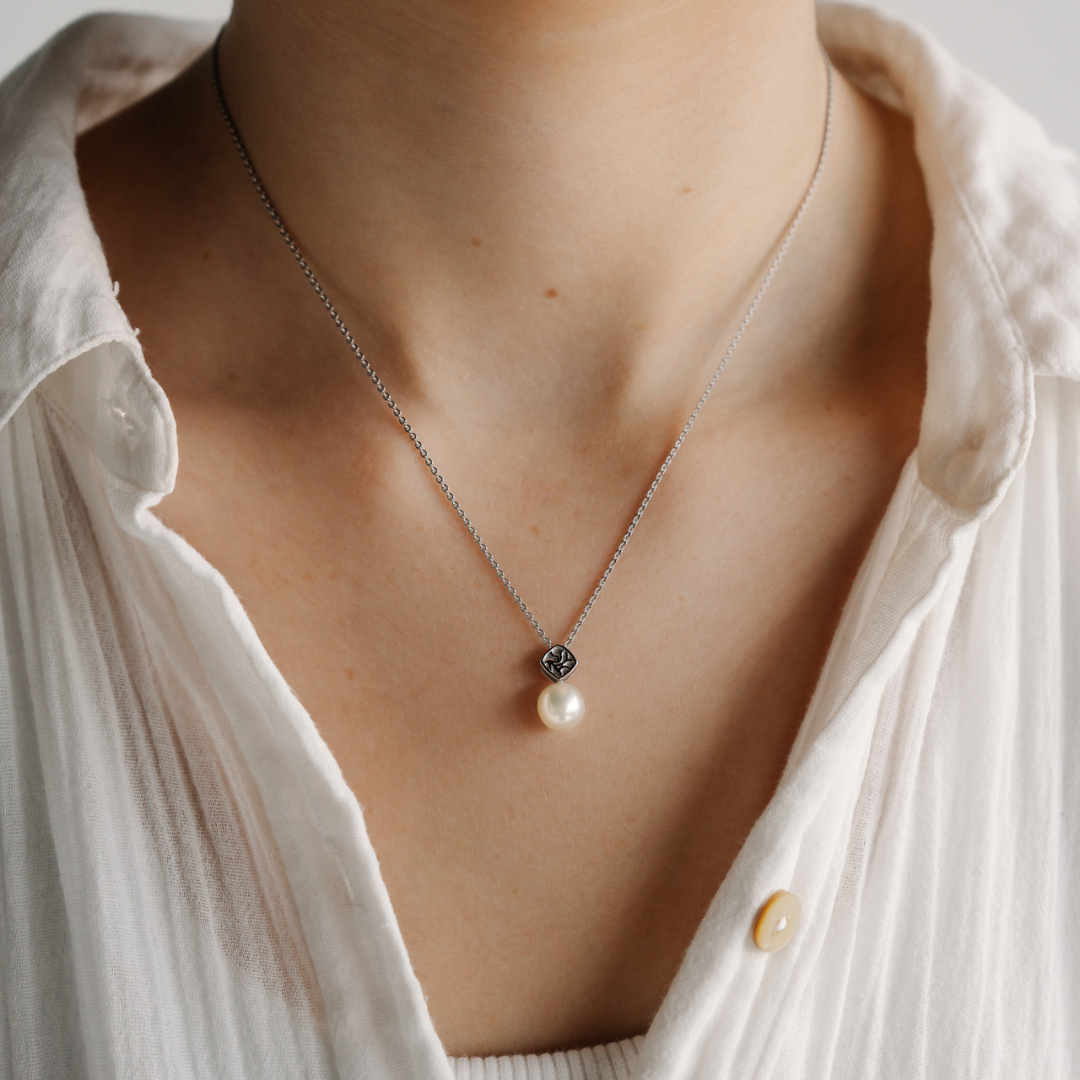
akoya pearls
Shop Akoya Pearls- Small - Medium
- Size: 7-8mm
- Colour: White, pink, silver, blue
- Oyster Species: Pinctada fucata
- Origin: Broken Bay Pearl Farm
-
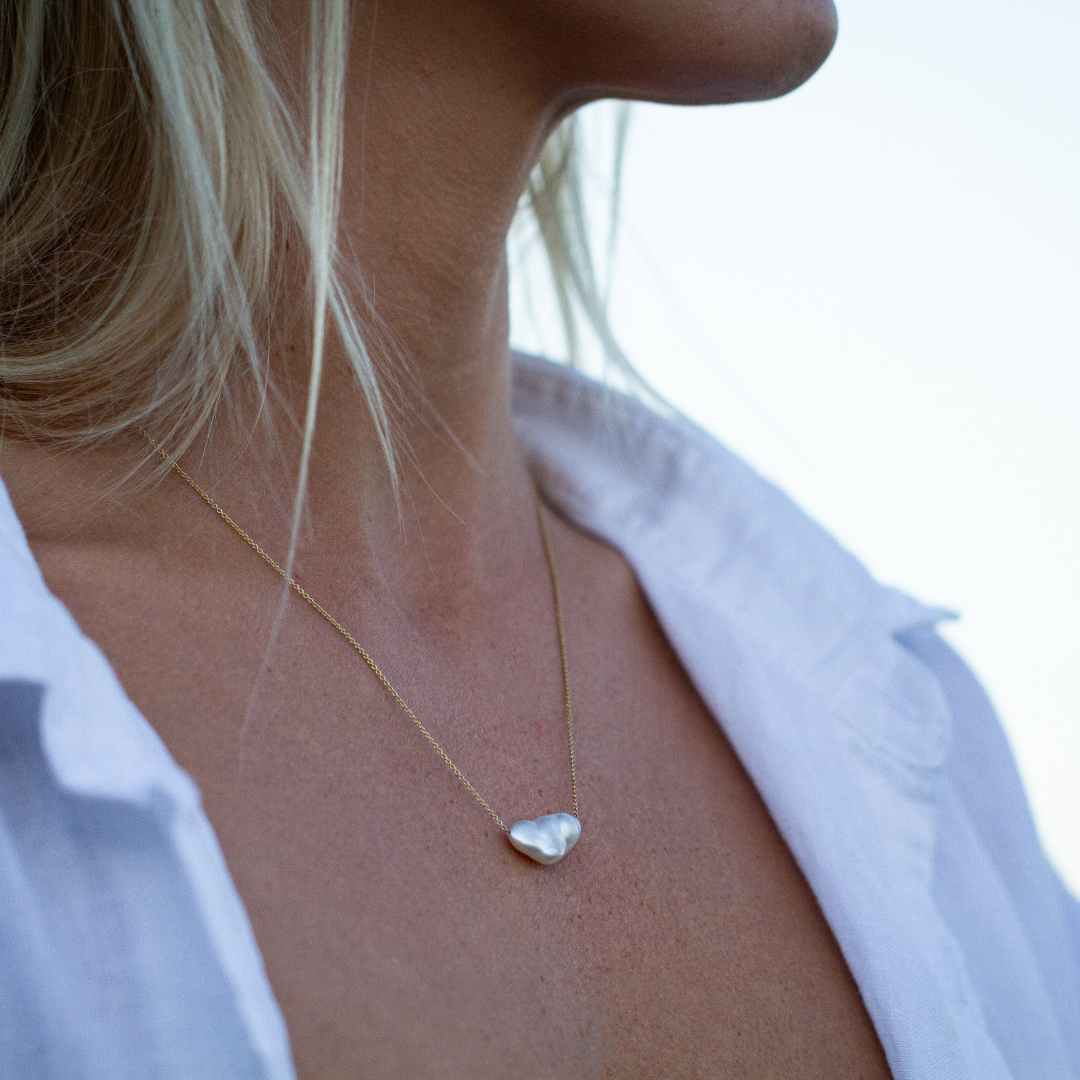
keshi pearls
Shop Keshi Pearls- Small - Medium
- Size: 5-9mm
- Colour: White or cream
- Oyster Species: Pinctada maxima
- Origin: Cygnet Bay Pearl Farm
-
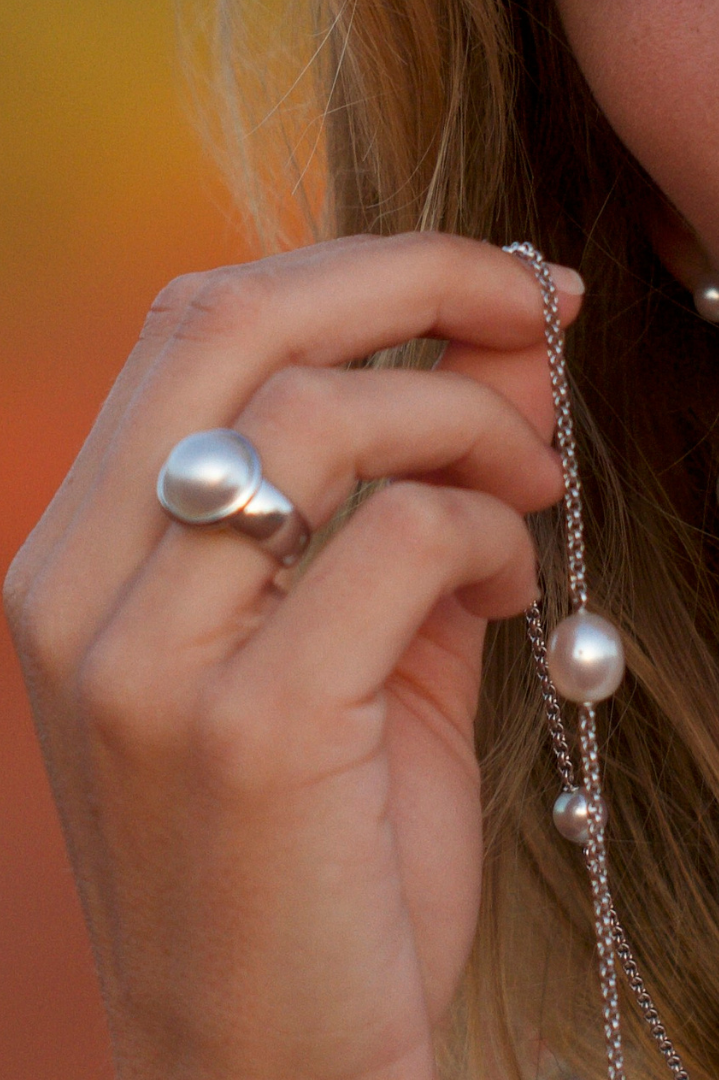
mabe pearls
Shop Mabe Pearls- Medium - Large
- Size: 10-13mm
- Colour: White or cream
- Oyster Species: Pinctada maxima
- Origin: Cygnet Bay Pearl Farm
PEARL SURFACE
Pearls of Australia jewellery features only clean to moderately blemished pearls. Lightly and moderately blemished pearls can be matched as strands. Regardless of the type of pearl, if the pearl has a smooth, clean surface it will be valued higher than those with multiple inclusions.
Our grading system categorises Akoya Pearls Surface as:
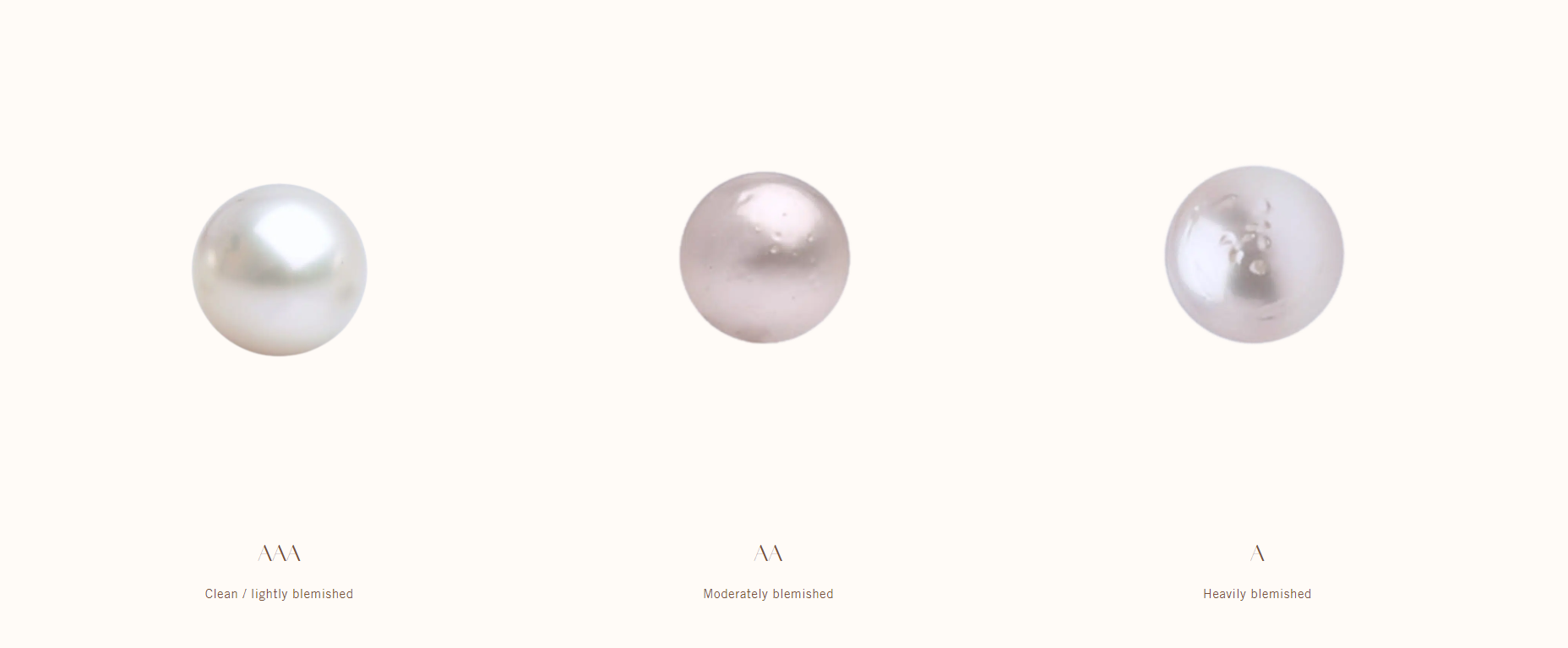
Our grading system categorises South Sea Pearls Surface as:

PEARL LUSTRE
Pearls of Australia jewellery exclusively features pearls of good to excellent lustre. It is observed below the pearl surface and expressed through the sharpness of the image it reflects. Lustre describes the way light reflection off the surface of the pearl, and the sharper the lustre – the more valuable the pearl.
Our grading system for both South Sea & Akoya categorises Lustre as:

pearl size
Our grading system for both South Sea & Akoya expresses Size as millimetres (mm) or momme (3.75g) – which is the Japanese weight measure for pearls and commonly used for the international market. In terms of both Akoya and South Sea Pearls – the larger the size, the more valuable the pearl. This is because large, perfectly symmetrical pearls are rare as they take many years to form.
South Sea Pearl Sizes
South Sea Pearl size usually range from 8 to over 20mm. Australian South Sea Pearls average size is bigger than their Indonesian and Philippines counterparts. Relative proportion and balance come into play here rather than size alone.
Akoya Pearl Sizes
Akoya Pearl size ranges from 4mm – 10mm with the average sitting around 6.5-8mm.
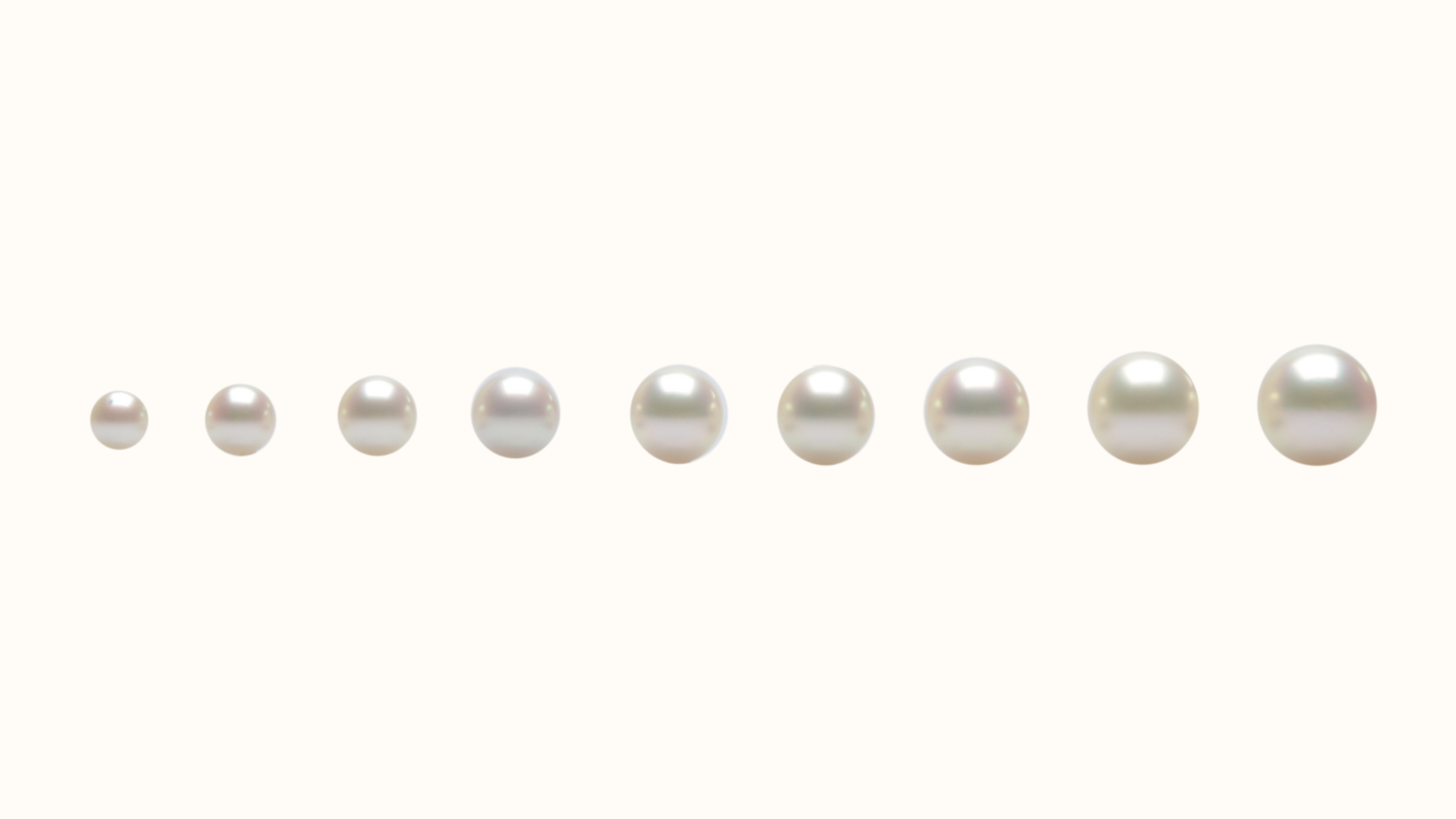
PEARL SHAPE
Pearls of Australia jewellery features all shapes of pearls however there is generally a larger diversity in shape from South Sea Pearls than Akoya Pearls. The rarest type of pearl is a truly round pearl – and therefore it is regarded as the most valuable.
Our grading system for both South Sea & Akoya categorises Shape as:

PEARL COLOUR
Pearls of Australia jewellery only features the natural colours of pearls we grow. Value is weighted according to the depth, saturation and rarity of the colour.
Our grading system for both South Sea & Akoya categorises Colour as:

WE'RE HERE TO HELP
For further information & special requests, please email us at hello@pearlsofaustralia.com.au
Want to purchase a loose pearl? Visit our loose pearl buying guide here.
Wondering how to care for your pearl jewellery? Visit our product care page, or read our jewellery team's guide on caring for your precious piece.
If you want to learn more about our pearl jewellery from one of our incredibly knowledgeable and friendly customer care team – book a private in-person or virtual consultation today!



